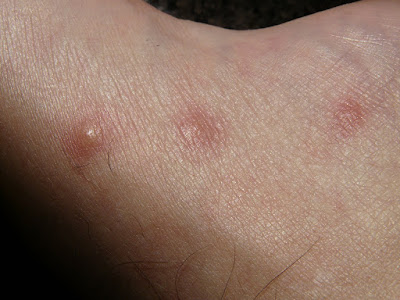Itchiness is an irritating skin condition that may arise from a range from severe underlying health conditions. Here are some of the diseases that may cause skin irritation or itching:
Anemia
It is a disease caused by iron deficiency in the body. Iron is very important for production of hemoglobin, a blood molecule that carries oxygen. Due to lack of hemoglobin the skin becomes very dry thereby causing itchy skin.
Hormonal changes
Hormonal changes especially at the commencement of menopause or cessation of menstruation may lead to itchy skin conditions. During menopause, the level of estrogen, a fibrous protein that provides strength, resilience, and support to the skin and other tissues decreases. Lowered estrogen production also hampers the body’s ability to hold moisture and also retards skin oils production. All of these factors contribute to skin’s itchiness.
Diabetes
Itchy skin conditions are often associated with diabetes. High level of glucose in the blood interferes with proper blood circulation and flow of blood to the skin thereby changing the skin’s collagen. It also damages nerves and blood vessels. This hampers texture and appearance of the skin and its ability to mend.
Cancer
Substances released by the malignant tumour or due to the body’s reaction to the cancerous cells results in itchiness. The itching may occur throughout the body but worsens on the chest and the legs. The conditions can be controlled with treatment of cancer.
Kidney disease
Kidney is an organ that removes wastes or toxins from the bloodstream. When there is any kind of serious problems associated with the kidneys the wastes are not properly removed and accumulates in the blood thereby causing severe itching.
Liver disease
Liver is the largest gland that plays a vital role in metabolism and detoxification of various metabolites. Any problem associated with liver hampers its normal detoxification process. Liver produces bile a fluid that helps removal of wastes excretion of bilirubin and digestion of fat. Any blockage in the pathway of bile flow increases its concentration in the blood. This may also lead to increased level of bilirubin and chemicals closely associated with the bile thereby causing severe itchiness of skin.
Allergy
Your body may develop an itching sensation due to allergic reaction to specific substances, food or medicines. These substances causing itching or inflammation is known as allergen. To counter the allergens, the antibodies secreted by the plasma cells get triggered to release a substance known as histamine. This release causes inflammation and swelling associated with severe skin irritation or itching.
Infections
Various infections caused by fungi bacteria or viruses may cause skin irritations or itching. For example a common bacterium Staphylococcus epidemidis that occurs on skin often blocks the sweat glands that may lead to itching or irritation of skin. HIV is another viral infection linked to itching or skin irritation. Itching may be triggered by parasitic infections as those from scabies and lice. Itchy skin conditions may also arise due to infection from fungus like Tinea, Candida.
Neurological anarchy
Damage to nerves from inflammations or strained nerve caused due to arthritis may result in persistent itching. When the nerves controlling the itch sensation gets irritated it results in unceasing itching.
To get some relief from the irritable itchiness always stay hydrated, eat fresh fruits and vegetables, keep yourself clean, add some essential fatty acids to your diet and get yourself thoroughly checked by your physician to combat any underlying disease.
The post first appeared in KenFolios - Health. Be Informed be Healthy.
The post first appeared in KenFolios - Health. Be Informed be Healthy.

No comments:
Post a Comment
My special thanks for visiting and sharing your thought.....